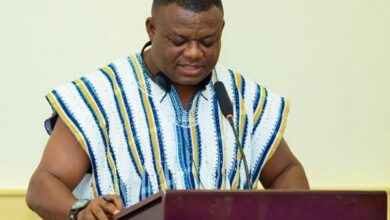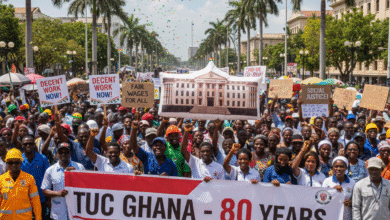Cedi at 60: A Journey of Hope, Hardship and Resilience
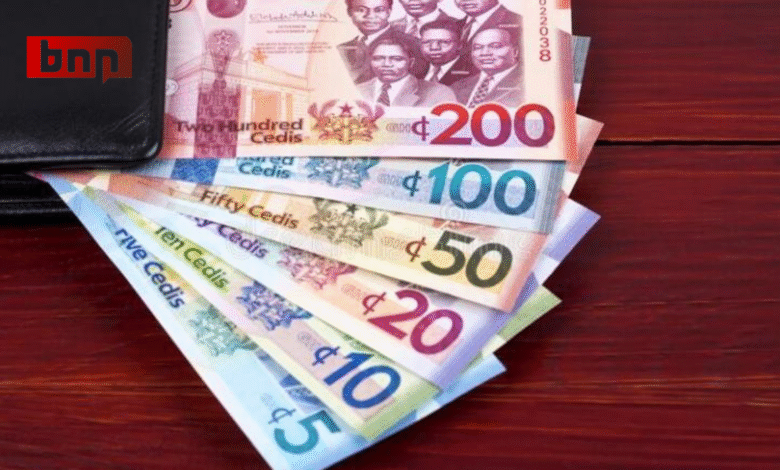
As Ghana’s Cedi approaches its 60th anniversary on July 19, 2025, the moment invites deep reflection on a journey that mirrors the nation’s own post-independence evolution—marked by bold reforms, economic shocks, resilience, and a continuous pursuit of stability.
Introduced in 1965 under the leadership of Ghana’s first President, Dr. Kwame Nkrumah, the Cedi replaced the Ghanaian Pound and symbolized a break from colonial monetary legacy. At inception, the Cedi was stronger than the US dollar—valued at ¢1 to US$1.02—a feat that offered Ghanaians pride in their currency as a tool of sovereignty and economic independence.
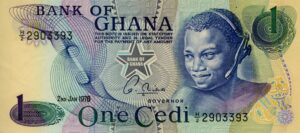
The Early Years: A Currency with Confidence
The original Cedi, known as the “First Cedi,” was decimalised and rooted in a strong, state-led development era. But the optimism was short-lived. Political instability and mismanagement during the late 1960s and 1970s, coupled with external shocks such as the oil crisis and collapsing cocoa prices, eroded the Cedi’s purchasing power.
The 1979 and 1983 Reforms: Surviving Hyperinflation
By the late 1970s, the Cedi had lost significant value. Inflation peaked above 100% in some years, leading to serious hardship for households. The introduction of the “Second Cedi” (in 1979) was meant to reset the currency system, but persistent inflation, black-market trading, and economic inefficiencies rendered reforms largely ineffective.
In 1983, under the Rawlings-led administration, Ghana launched the Economic Recovery Programme (ERP), backed by the IMF and World Bank. As part of the reforms, the exchange rate system was liberalized. The Cedi was allowed to float, and though these policies helped stabilize macroeconomic fundamentals, they also led to steep depreciation. The dollar, once weaker than the Cedi, was now far ahead.
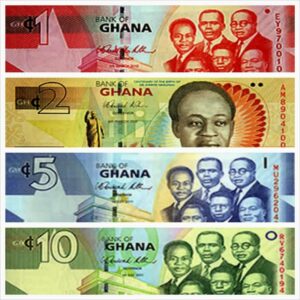
The 2007 Redenomination: A Bold Reset
The next major milestone came in July 2007, when the Bank of Ghana undertook a sweeping redenomination exercise, knocking four zeros off the currency and introducing the Ghana Cedi (GHS), which replaced the third Cedi (GHC) at a rate of ¢10,000 = GH¢1. This was seen as a strategic move to simplify transactions, restore confidence in the currency, and fight inflation.
Initially, the redenomination brought calm and efficiency. Ghana was lauded for the reform. The Cedi became one of the strongest currencies in Africa during the late 2000s.
Persistent Pressures and Structural Challenges
Yet, the deeper structural issues, low export diversification, dependence on commodities like gold and cocoa, high fiscal deficits, and foreign debt accumulation—continued to weigh heavily on the Cedi. The currency has since experienced recurrent episodes of sharp depreciation, notably in 2014, 2019, and 2022–2023, when global crises, fiscal slippages, and loss of investor confidence triggered swift value losses.
The COVID-19 pandemic and the Russia-Ukraine war further compounded Ghana’s economic stress, leading to balance of payments deficits and currency volatility. In 2022, the Cedi was among the world’s worst-performing currencies, trading at over GH¢15 to the dollar at its peak. This prompted Ghana to seek a $3 billion IMF bailout.
Cedi in 2024 and Beyond: Signs of Hope
Recent measures by the Bank of Ghana, including aggressive monetary tightening, the Gold-for-Oil programme, and strengthening of foreign reserves, have helped stabilize the Cedi in 2024. The central bank continues to emphasize its commitment to ensuring price and exchange rate stability.
In its 60th year, the Cedi remains far from its golden beginnings, yet it continues to be a symbol of national pride. The Bank of Ghana has announced a series of commemorative events from July to December 2025 to mark the occasion, including public exhibitions, educational campaigns, and stakeholder forums, to honor the currency’s journey and Ghana’s enduring economic resilience.
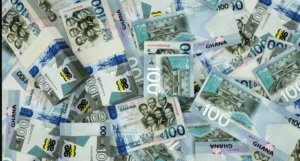
A Symbol of Economic Identity
“The Cedi is not just a means of exchange, it is a reflection of our heritage, our economic struggles, and our aspirations,” the Bank of Ghana said in a statement announcing the anniversary celebrations.
As Ghana faces the future, the Cedi stands as both a reminder and a challenge. Its history tells a story of ambition and adversity. Its future depends on sound policies, disciplined fiscal management, and the shared responsibility of every Ghanaian to safeguard its value.

